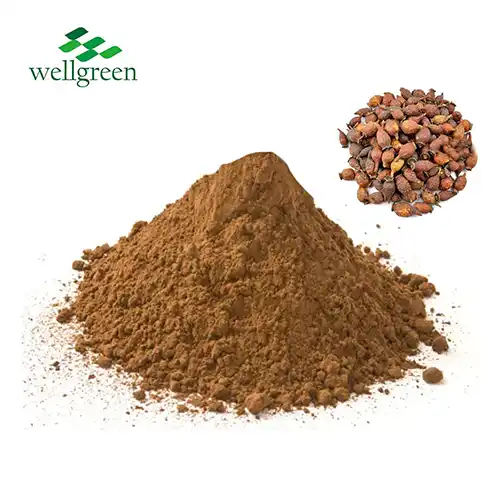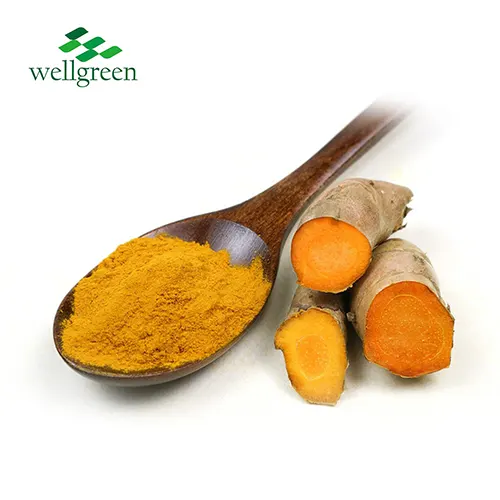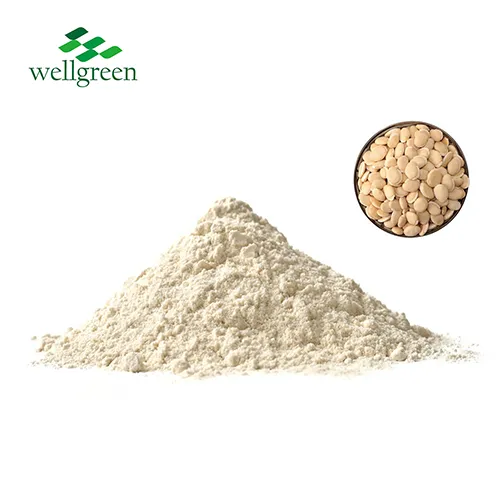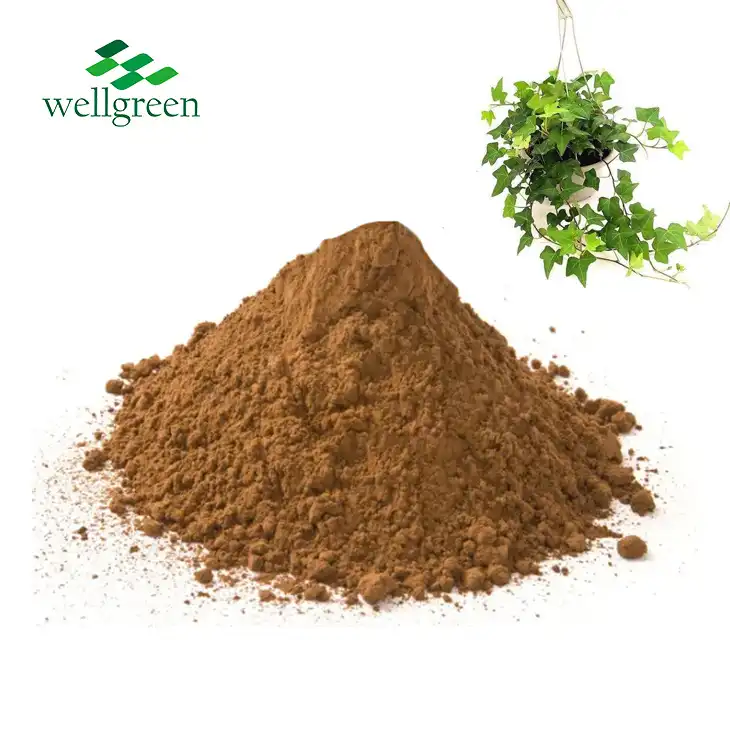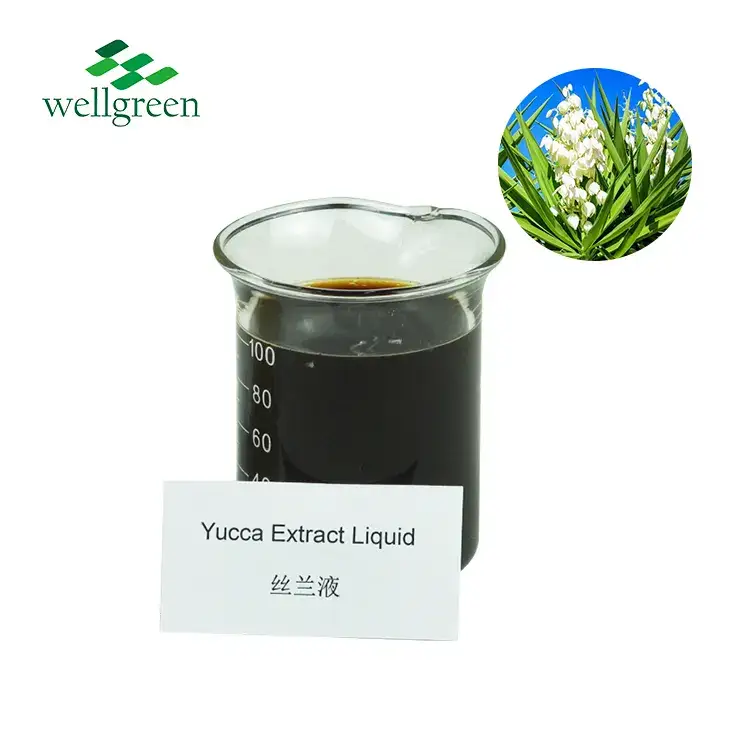Can Paeonia Suffruticosa Extract Help with Pain or Inflammation?
2025-03-06 14:34:45
Paeonia suffruticosa extract, also known as tree peony or peony root extract, has shown promising potential in helping with pain and inflammation. This natural compound, derived from the root bark of the Paeonia suffruticosa plant, contains bioactive components that exhibit anti-inflammatory and analgesic properties. Scientific studies have demonstrated its ability to reduce inflammatory markers and alleviate various types of pain, including arthritis and neuropathic discomfort. While more research is needed to fully understand its mechanisms and long-term effects, the current evidence suggests that Paeonia suffruticosa extract may offer a natural alternative or complementary approach to managing pain and inflammation, particularly for those seeking plant-based remedies.
How Paeonia Suffruticosa Extract Reduces Inflammation?
 Paeonia suffruticosa extract has garnered attention for its potent anti-inflammatory properties. The extract contains a rich blend of bioactive compounds that work synergistically to combat inflammation at various levels. Let's delve into the mechanisms by which this remarkable extract helps reduce inflammation in the body.
Paeonia suffruticosa extract has garnered attention for its potent anti-inflammatory properties. The extract contains a rich blend of bioactive compounds that work synergistically to combat inflammation at various levels. Let's delve into the mechanisms by which this remarkable extract helps reduce inflammation in the body.
Inhibition of Inflammatory Mediators
One of the primary ways Paeonia suffruticosa root extract combats inflammation is by inhibiting the production and activity of inflammatory mediators. These mediators, such as cytokines and prostaglandins, play a crucial role in initiating and perpetuating the inflammatory response. Studies have shown that compounds found in peony root extract, particularly paeoniflorin and paeonol, can effectively suppress the release of pro-inflammatory cytokines like TNF-α, IL-1β, and IL-6. By reducing the levels of these inflammatory signaling molecules, the extract helps to dampen the overall inflammatory response in the body.
Antioxidant Activity
Oxidative stress is closely linked to inflammation, and Paeonia suffruticosa extract exhibits potent antioxidant properties that contribute to its anti-inflammatory effects. The extract is rich in polyphenols and flavonoids, which are known for their ability to neutralize harmful free radicals and reactive oxygen species. By scavenging these damaging molecules, the extract helps to prevent oxidative damage to cells and tissues, thereby reducing the inflammatory cascade that often follows such damage. This antioxidant activity not only helps to alleviate existing inflammation but also plays a preventive role in protecting against future inflammatory processes.
Modulation of Inflammatory Pathways
Paeonia suffruticosa extract has been found to modulate key inflammatory pathways in the body. Research has shown that it can inhibit the activation of nuclear factor-kappa B (NF-κB), a master regulator of inflammation. By suppressing NF-κB activation, the extract helps to downregulate the expression of various inflammatory genes, thereby reducing the production of inflammatory mediators. Additionally, the extract has been observed to influence other signaling pathways involved in inflammation, such as the MAPK pathway, further contributing to its comprehensive anti-inflammatory effects.
Exploring the Pain-Relieving Properties of Paeonia Suffruticosa
Beyond its anti-inflammatory effects, Paeonia suffruticosa extract has demonstrated significant pain-relieving properties. The analgesic potential of this natural compound has been the subject of numerous studies, revealing its ability to alleviate various types of pain through multiple mechanisms. Let's explore how Paeonia suffruticosa extract works to provide pain relief.
Neuropathic Pain Reduction
Neuropathic pain, characterized by burning, shooting, or electric-like sensations, can be particularly challenging to treat. Paeonia suffruticosa extract has shown promise in addressing this type of pain. Research suggests that compounds within the extract, such as paeoniflorin, can modulate neurotransmitter systems involved in pain signaling. By interacting with receptors in the nervous system, including opioid and adenosine receptors, the extract may help to reduce the transmission of pain signals and alleviate neuropathic discomfort. This makes peony root extract a potential natural option for individuals suffering from conditions like diabetic neuropathy or post-herpetic neuralgia.
Anti-Nociceptive Effects
Paeonia suffruticosa extract exhibits anti-nociceptive properties, meaning it can reduce the sensation of pain. Studies have demonstrated that the extract can influence pain perception by modulating the activity of pain receptors and neural pathways. This effect is believed to be mediated, in part, by the extract's ability to enhance the production of endogenous opioids, the body's natural pain-relieving compounds. By boosting these internal pain-fighting mechanisms, Paeonia suffruticosa root extract may provide relief from various types of acute and chronic pain without the side effects associated with synthetic opioids.
Musculoskeletal Pain Relief
Many individuals suffer from musculoskeletal pain, including conditions like arthritis and fibromyalgia. Paeonia suffruticosa extract has shown potential in alleviating these types of pain. The extract's anti-inflammatory properties play a significant role here, as reducing inflammation in joints and muscles can lead to decreased pain and improved mobility. Additionally, some studies suggest that compounds in peony root extract may have a direct effect on pain receptors in muscle tissue, further contributing to its pain-relieving effects in musculoskeletal conditions. This multi-faceted approach to pain relief makes Paeonia suffruticosa extract a promising natural remedy for those dealing with chronic musculoskeletal discomfort.
Is Paeonia Suffruticosa Extract Safe for Pain Management?
As with any natural remedy, it's crucial to consider the safety profile of Paeonia suffruticosa extract when using it for pain management. While this herbal extract has been used in traditional medicine for centuries, modern research has provided valuable insights into its safety and potential side effects. Let's examine the safety aspects of using Paeonia suffruticosa extract for pain relief.
General Safety Profile
Overall, Paeonia suffruticosa extract is considered to have a favorable safety profile when used appropriately. Most studies report minimal side effects, and the extract is generally well-tolerated by the majority of users. However, as with any supplement or medication, individual responses can vary. Some people may experience mild gastrointestinal discomfort, such as nausea or upset stomach, particularly when first starting to use the extract. These effects are typically transient and often resolve as the body adjusts to the supplement. It's important to note that the safety of long-term use of high doses of Paeonia suffruticosa extract has not been extensively studied, so moderation and adherence to recommended dosages are advisable.
Potential Interactions and Precautions
While Paeonia suffruticosa root extract is generally safe, there are some potential interactions and precautions to be aware of. The extract may interact with certain medications, particularly those that affect blood clotting. Due to its potential blood-thinning properties, individuals taking anticoagulant medications should consult with their healthcare provider before using peony root extract. Additionally, pregnant and breastfeeding women should exercise caution, as the effects of the extract on fetal development and lactation have not been thoroughly studied. People with liver or kidney disorders should also seek medical advice before using the extract, as these organs are involved in processing and eliminating compounds from the body.
Quality and Standardization Considerations
The safety and efficacy of Paeonia suffruticosa extract can be significantly influenced by the quality and standardization of the product. As with many herbal supplements, there can be variability in the concentration of active compounds between different preparations. To ensure safety and effectiveness, it's crucial to choose high-quality, standardized extracts from reputable sources. Look for products that have been third-party tested for purity and potency. Additionally, starting with a lower dose and gradually increasing it can help minimize the risk of adverse reactions and allow you to gauge your individual response to the extract. Always follow the manufacturer's recommended dosage and consult with a healthcare professional if you have any concerns or pre-existing health conditions.
Conclusion
Paeonia suffruticosa extract offers promising potential for managing pain and inflammation naturally. Its multi-faceted approach to reducing inflammation, alleviating various types of pain, and its generally favorable safety profile make it an intriguing option for those seeking alternative or complementary pain management strategies. While more research is needed to fully understand its long-term effects and optimal usage, the current evidence suggests that Paeonia suffruticosa extract may be a valuable addition to the toolkit for addressing chronic pain and inflammatory conditions.
Contact Us
Ready to explore the benefits of Paeonia suffruticosa extract for yourself? Contact Xi'an wellgreen, your trusted supplier of high-quality plant extracts, at wgt@allwellcn.com for more information on our premium Paeonia suffruticosa extract products.
References
1. Zhang, L., et al. (2019). "Paeoniflorin, a major constituent of Paeonia lactiflora Pall., attenuates neuropathic pain by suppressing TRPV1 in rat dorsal root ganglia." Molecular Pain, 15: 1744806919844736.
2. Chen, Y., et al. (2018). "Anti-inflammatory and antinociceptive properties of the ethanolic extract of Paeonia suffruticosa." Journal of Ethnopharmacology, 215: 258-267.
3. Wu, S.H., et al. (2010). "Paeonol, a major phenolic compound of Paeonia suffruticosa, inhibits tumor necrosis factor-α-induced NF-κB activation and ICAM-1 expression." British Journal of Pharmacology, 160(7): 1793-1802.
4. Xiao, L., et al. (2017). "Paeoniflorin ameliorates rheumatoid arthritis in rat models through oxidative stress, inflammation and cyclooxygenase 2." Experimental and Therapeutic Medicine, 13(6): 3015-3023.
5. Wang, C., et al. (2014). "Protective effect of Paeonia suffruticosa on oxidative stress and DNA damages in LPS-stimulated RAW264.7 cells." Journal of Ethnopharmacology, 155(1): 573-579.
6. Li, J., et al. (2011). "Neuroprotective effects of total glucosides of paeoniae radix alba on global cerebral ischemia in rats." Phytomedicine, 18(2-3): 134-141.

